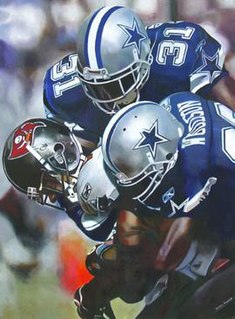A Quote by Lobsang Tenzin
People forget who they are; they always remain with an identity which is not the real self. It is just a projected self which does not exist, but they identify with this projected self appearance.
Related Quotes
Happiness is your real nature. You identify with yourself with the body and mind, feel it's limitations, and suffer. Realize your true self in order to open the store of happiness. That true self is the reality, the Supreme Truth, which is the self of all the world you now see, the self of all the selves, the One real, the Supreme, the Eternal self - as distinct from the ego or the bodily idea for the self.
The idea that somehow "no self, no problem"- I don't exist because I don't have a self- would be a mistaken understanding. However, the selflessness teaching is not that hard to understand. What it means is a type of self that people feel they have, like a fixed, unchanging identity. Either they know they have it, or for some, they feel they need to seek it, and possibly have an experience where they feel like they found something. That type of fixed, unchanging, essential self, or absolute self doesn't exist. That's what "no self" means.
Bacon's portraits are an interrogation on the limits of the self. Up to what degree of distortion does an individual still remain himself? To what degree of distortion does a beloved person still remain a beloved person? For how long does a cherished face growing remote through illness, through madness, through hatred, through death still remain recognizable? Where is the border beyond which a self ceases to be a self?
Speaking of Self-realizatio n is a delusion. It is only because people have been under the delusion that the non-Self is the Self and the unreal the Real that they have to be weaned out of it by the other delusion called Self-realizatio n; because actually the Self always is the Self and there is no such thing as realizing it.
It is madness. And if you don't know who you are, or if your real self has drifted away from you with the undertow, madness at least gives you an identity. It's the same with self-loathing. You're probably just normal and normal-looking but that's not a real identity, not the way ugliness is. Normality, just accepting that you're probably normal-looking, lacks the force field of self-disgust. If you don't know who you are, madness gives you something to believe in.








































